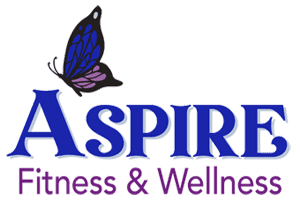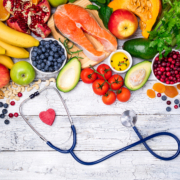THE “DIET” DILEMMA PART 2- Pros and Cons of Some Popular Eating Plans
My previous post talked about 4 popular “diets” or eating plans and their basic structures. Now I will outline some pros and cons of each. If you are looking into any of these, hopefully this will decrease any confusion by simplifying the information.
PALEO
PROS: Since this plan eliminates/limits refined grains and added sugars, it automatically decreases the amount of processed foods you consume. This encourages protein intake to be increased, helping to decrease hunger while metabolism is increased by building lean muscle. Since it is not a low-carb diet, you will not have the fatique, headaches or other side effects that can accompany some low-carb plans. Also, studies have shown that the Paleo style of eating may improve blood sugar control and blood lipid numbers which can protect against conditions such as diabetes and heart disease.
CONS: Eliminating dairy, grains and legumes may lead to a lack of certain vitamins, minerals and antioxidants. It is important to consume Paleo approved vegetables and other plant-based foods in addition to protein in order to get enough of these nutrients. If you follow Paleo recommendations to use organic vegetables, wild caught seafood and grass-fed meats, you may require a much bigger food budget.
KETOGENIC
PROS: Since carbs and sugar are not part of the keto diet, this may help people to break their negative relationship with these foods if they are a problem. Going low-carb and high fat can encourage you to eat less overall since fat is very satisfying and helps to control hunger. The ketones produced by this eating style have a direct hunger-reducing effect as well. Some metabolic benefits, at least in the short term, can include less insulin resistance and lower blood triglyceride numbers.
CONS: Keto diets can definitely help people shed the weight in the short term, however, long term results in relation to sustained fat loss and overall health have not been proven. Since the program is restrictive, it can be difficult to sustain for the long term. If you do decide to return to eating carbohydrates, weight gain can be an issue if the transition is not done slowly and methodically. By limiting carbs, you also eliminate many healthy, nutrient dense foods such as fruits, many vegetables, beans and whole grains. This diet can also encourage a high saturated fat intake which is still a concern for heart health. Performance during high intensity exercise may be challenging and limited due to a lack of carbohydrate stores. Too much protein can throw you out of ketosis, but low protein intake can also make it harder to put on lean muscle mass.
INTERMITTENT FASTING
PROS:There is research that suggests that this method is effective in spurring weight loss with no change in caloric intake, just in timing of meals and fasting periods. Unlike other plans, there are no foods that are forbidden. The only limitation is how much you can eat at certain points. This can help people to get in touch with their true feelings of hunger and fullness. It also limits night time snacking.
CONS: Side effects such as raging hunger, brain fog, and irritability during fasting can be too difficult for some people to work through. Since there is no focus on what types of foods you eat, this may tempt people to eat junk food as a reward for fasting. Studies looking at long term weight loss benefits are still lacking.
PLANT-BASED
PROS: Eating more plants makes it easier to get the vitamins, minerals, fiber and antioxidants that you need. A healthy, plant-based diet is associated with less risk in all types of mortality. By eating more plants and less meat, you can also help in the battle against global warming.
CONS: You will need to make sure that you get the nutrients found in animal based foods such as protein and vitamin B12. It is still important to limit processed, packaged foods that are full of refined grains, sugar, and unhealthy fats. Just because they don’t contain animal products and are “plant based”, does not mean they are healthy options.
When choosing a plan, it is SO important to look at YOUR life, YOUR goals and what is reasonable for YOU. Don’t get caught up in what is trendy right now because it will eventually change- it always does!
As I tell my clients…it is a lifestyle, not a temporary way of eating.


